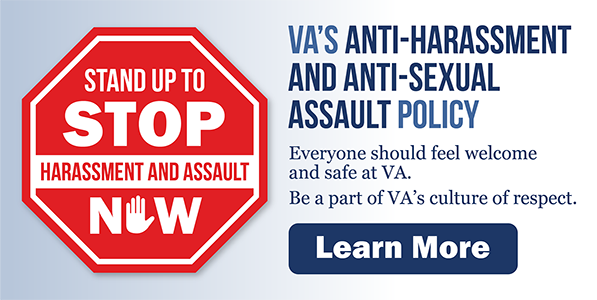Education and Training.
Policy Protecting Students from Fees and Penalties Due to VA Payment Delay
Effective August 1, 2019, schools are not allowed to penalize or prohibit a GI Bill student from attending or participating in courses while awaiting VA payment (for up to 90 days). See the Veterans Benefits and Transition Act of 2018 for more information.
While the policy must be in place by August 1, 2019, the SAA will determine where this information will be available. Approved institutions must have this information available to students in either the school’s catalog, through an addendum, or on their Website. In addition, the VA GI Bill Comparison Tool will identify schools that have additional requirements.
See school information, including waivers and possible disapproval of programs.
Student Information
If I don't submit a COE by the first day of the term (or some other date after the first term that the school sets as a deadline), is the school allowed to charge me a late fee for unpaid tuition and fees?
Yes. The law allows schools to require students to submit a COE in order to qualify for the protections listed in the law. If a student does not comply with their school’s requirement, the student is not protected and the school is allowed to charge a late fee. That late fee, which is due to the student’s failure, will be owed by the student. Even if the student ultimately submits a COE and VA pays tuition and fees, the late fee cannot be reimbursed to the student.
PLEASE NOTE: An institution MUST have a “late fee” policy/requirement in place at the time it’s charged and not created specifically to charge GI Bill benefit recipients.
What constitutes a “Certificate of Eligibility” (COE)?
VA defines “certificate of eligibility” to be any documentation provided by VA that serves to verify eligibility under chapter 31 or 33. The policy permits a student to attend their course of education when the student provides the necessary eligibility documentation, until the earlier of either:
- the date VA provides payment to the educational institution, or
- 90 days after the date the educational institution certifies the student’s tuition and fees charges to VA.
What other criteria can my school impose (other than COE)?
Educational institutions are still permitted to require a student using chapter 31 or 33 to take the following additional actions:
- Submit verifiable and authoritative proof of eligibility for entitlement to educational assistance (e.g., Certificate of Eligibility; Statement of Benefits) not later than the first day of a course of education for which the student has indicated he or she wishes to use entitlement to educational assistance.
- Submit a written request to use such entitlement.
- Provide additional information necessary to the proper certification of enrollment by the educational institution. “Additional information necessary for proper certification of enrollment” requirements need to be approved by the SAA before going into effect.
Can I be penalized for a late payment by VA?
The educational institution must adopt policy to ensure that it does not impose any penalty, including:
- assessment of late fees,
- denial of access to classes, libraries, or other institutional facilities, or
- require the student using to borrow additional funds due to the inability to meet financial obligations to the institution as a result of delayed payments for educational assistance from VA.
Can the school require a student to use his or her federal financial aid for tuition and fees while it awaits a VA payment?
No. The law prohibits the school from requiring a student to use his or her federal financial aid, or other sources of payment for tuition and fees while it awaits VA payments within the 90-day period. However, schools are not prohibited from allowing a student to utilize his or her federal financial aid, or any sort of aid or loan for tuition/fees during the interim period if the student wishes to do so. What a school may not do is insist that the student utilize this aid, take out loans, or do anything else so that the tuition and fees are paid in advance of the VA benefit payment.
What if my school is not compliant with the new law (i.e., a school is charging fees and/or barring the student from attending class even though the student supplied a Certificate of Eligibility and is still within the 90 day period)?
Submit a complaint to VA through the GI Bill School Feedback System.
What fees can a school charge me despite this policy?
A school may require a student to pay any charges for which there is no expectation VA will pay based on statute or VA regulations. Some examples are:
- fees for room or board,
- optional fees, i.e. parking, and/or
- the unmet portion of tuition payments as a result of a student qualifying for less than 100% of the maximum amounts payable.
The school may use standard collection policies for these amounts, including the assessment of late fees. Also, if the amount that VA eventually pays is less than what the school anticipated receiving, the school is free to levy a fee or require the student to pay for the unmet charges. Contact your School Certifying Official to discuss any fees you may have been charged erroneously.
School Information
Will my State approving agency automatically disapprove my program on August 1, 2019?
No.
The new legal requirement goes into effect on August 1, 2019. SAAs are not required to immediately disapprove non-compliant schools on August 1, 2019. Instead, if an SAA determines that a school is not in compliance, it will take appropriate corrective action, including suspension where warranted under 38 CFR § 21.4259. This will give the school 60 days to come into compliance or receive a waiver. If the school does not come into compliance or receive a waiver within 60 days, the SAA should withdraw approval under 38 U.S.C. § 3679. At the time an SAA determines a school in not in compliance due to reasons outside of the school’s direct control (for example, if action is required by the state legislature), the SAA may also recommend that the school request a waiver from the VA through the SAA.
Can a school get a waiver?
A waiver will only be granted if the educational institution was prohibited from coming into compliance. Please contact your SAA for details and guidance.


















